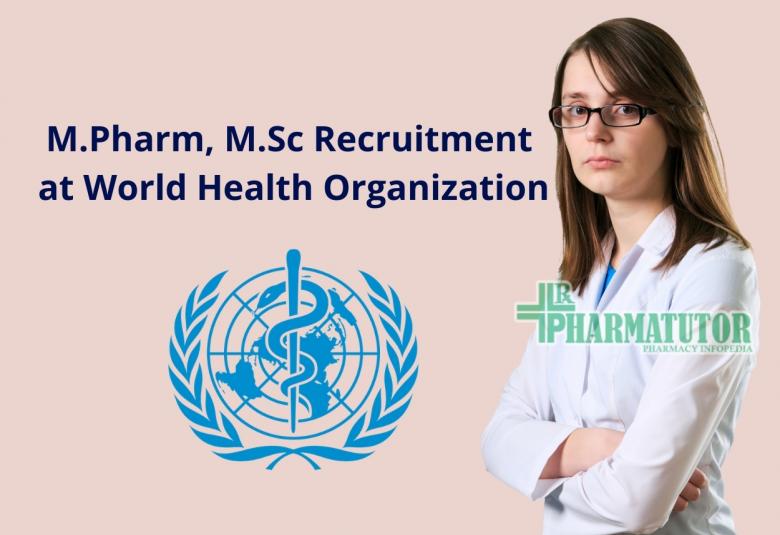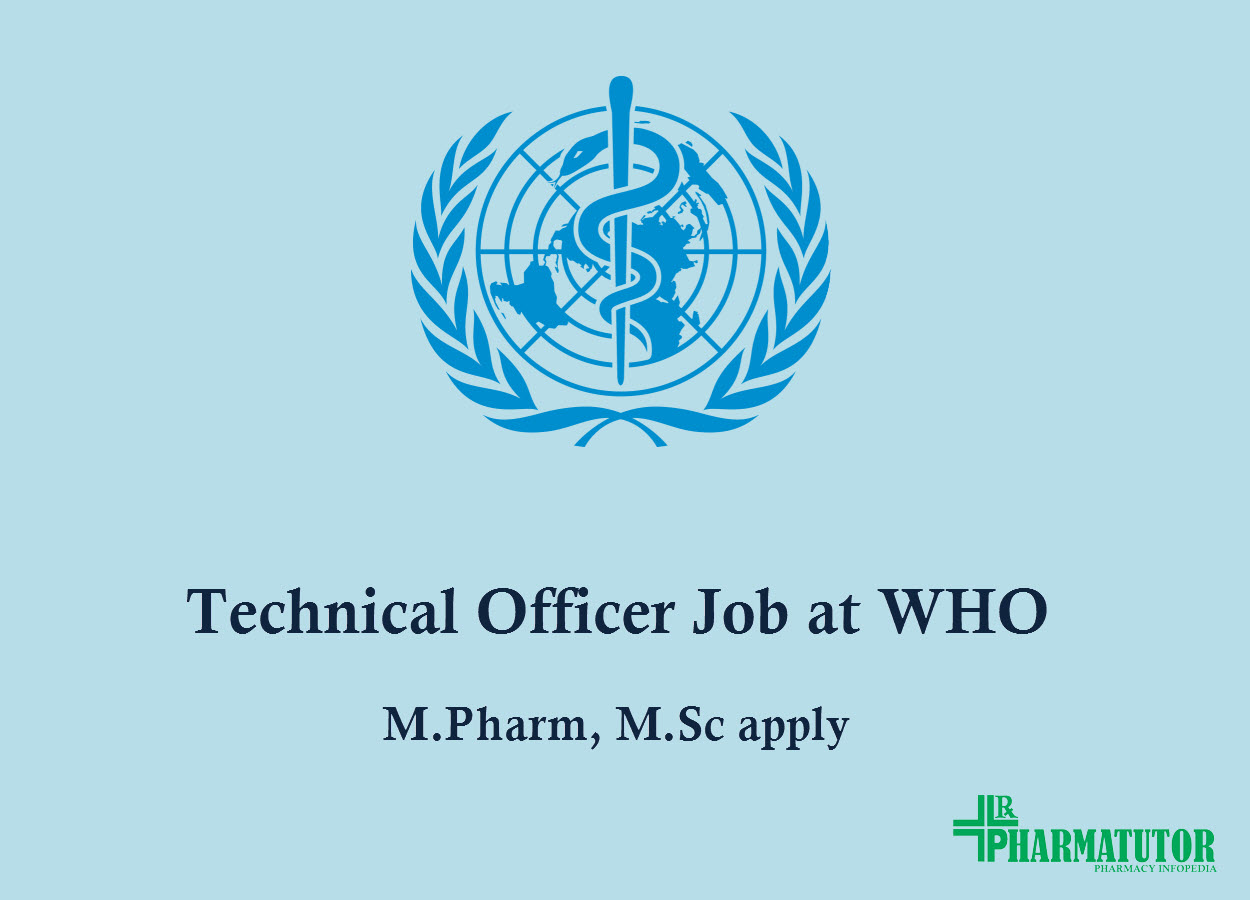M.Pharm, M.Sc Recruitment as Scientist at World Health Organization
WHO is the directing and coordinating authority for health within the United Nations system. It is responsible for providing leadership on global health matters, shaping the health research agenda, setting norms and standards, articulating evidence-based policy options, providing technical support to countries and monitoring and assessing health trends.
Post : Scientist (Vaccine Regulation, Safety & Management) - (2104110)


















